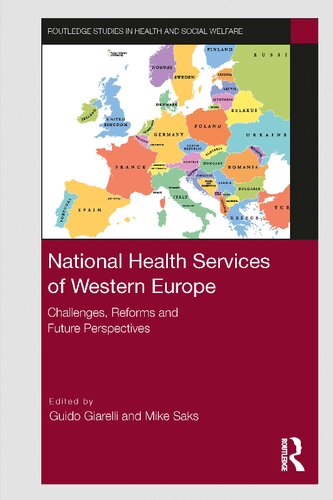

Most ebook files are in PDF format, so you can easily read them using various software such as Foxit Reader or directly on the Google Chrome browser.
Some ebook files are released by publishers in other formats such as .awz, .mobi, .epub, .fb2, etc. You may need to install specific software to read these formats on mobile/PC, such as Calibre.
Please read the tutorial at this link: https://ebookbell.com/faq
We offer FREE conversion to the popular formats you request; however, this may take some time. Therefore, right after payment, please email us, and we will try to provide the service as quickly as possible.
For some exceptional file formats or broken links (if any), please refrain from opening any disputes. Instead, email us first, and we will try to assist within a maximum of 6 hours.
EbookBell Team

4.8
54 reviewsThis book draws on research within neo-Weberian and neo-institutionalist perspectives to critically analyse National Health Services (NHSs) in Western Europe. Exploring the challenges posed by neo-liberal policies, it also looks at the impact of the role of the state, the medical profession, the public and the medical–industrial complex in their development.
Bringing together a top-line range of expert international contributors, this book includes national studies from three European macro-regions: Britain, Scandinavia and the Mediterranean. In the first part, the NHSs of each country considered are examined historically and in a contemporary context in face of emerging challenges – from cost containment to governance. The second part looks across the macro-regions at the influence of the main actors involved in their evolution and sustainability. Comparing and contrasting the NHSs of Western Europe, the book ends with a discussion of future directions.
This book makes a vital contribution at a time when health services globally have been under great pressure in the wake of the COVID-19 pandemic. It is written for academics and advanced students of healthcare, management, public policy, social policy and sociology – in addition to health professionals and policymakers.